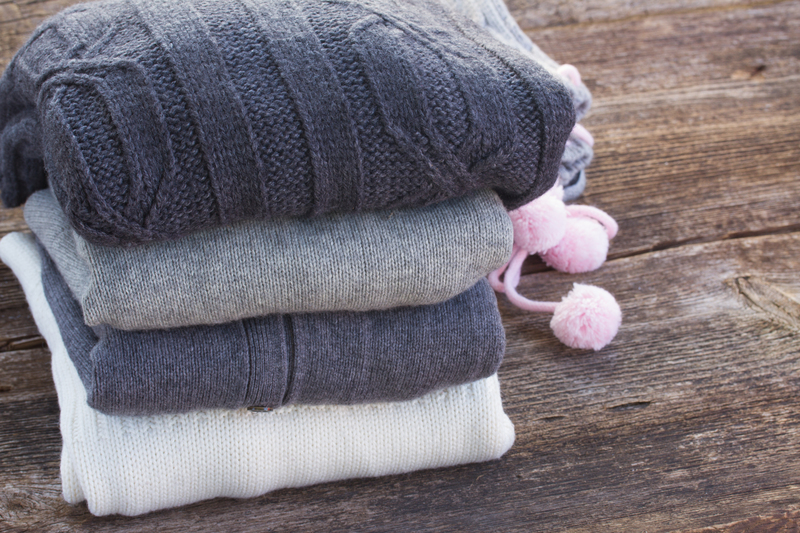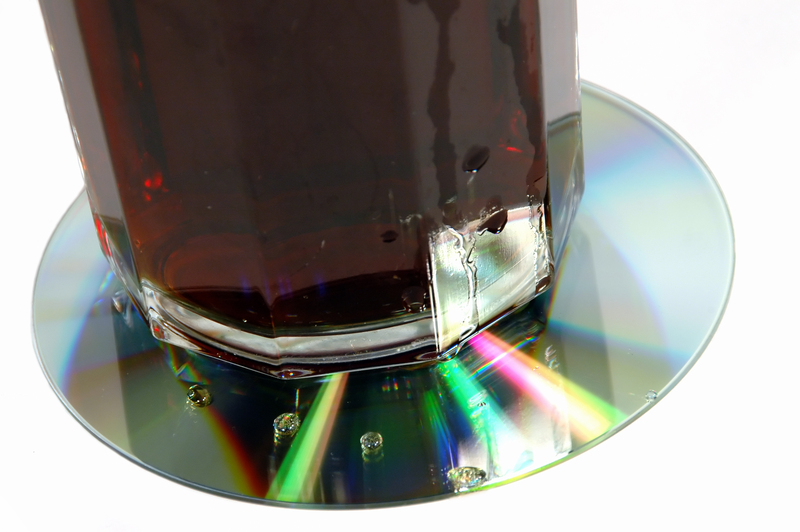Transform Your Life by Cutting Down Plastic Waste
Posted on 28/09/2025
Transform Your Life by Cutting Down Plastic Waste
Plastic pollution has become a pressing environmental issue, affecting oceans, wildlife, and even our health. Many people are becoming more aware of the dangers of single-use plastics, yet changing habits can feel overwhelming. The good news is that you can transform your life by cutting down plastic waste. In this comprehensive guide, you'll find actionable steps, real-life benefits, and inspiring ideas to help you start your journey today.
Why Reducing Plastic Waste Matters
Plastic is everywhere. It wraps our food, holds our drinks, and even forms the fibers in our clothing. Unfortunately, most plastic isn't biodegradable, meaning it sticks around for centuries, causing harm across the globe.
- Environmental Impact: Millions of tons of plastic end up in landfills and oceans annually, impacting marine and terrestrial life.
- Health Concerns: Microplastics have been found in our food, water, and air, potentially leading to unknown health risks.
- Economic Costs: Cleaning up plastic waste strains municipal budgets and damages industries like tourism and fishing.
By embracing plastic reduction, you're not just helping the planet--you're creating a healthier, more mindful lifestyle for yourself!

The Benefits of Cutting Down Plastic Waste
1. Improved Health and Well-Being
Reducing plastic exposure can lower your risk of encountering harmful chemicals such as BPA, phthalates, and microplastics. These substances can disrupt hormones, contribute to allergies, and may be linked to long-term illnesses.
2. A Cleaner Home and Planet
Swapping out plastic items for more sustainable options often leads to a tidier, more organized home. You'll also join millions of others worldwide who are working to protect nature and biodiversity by keeping plastics out of ecosystems.
3. Saving Money in the Long Run
Although reusable items can have a higher initial cost, they're built to last. Over time, you'll spend less and waste less--good news for both your wallet and the earth.
How to Transform Your Life by Reducing Plastic Waste
Taking charge of your plastic consumption may seem daunting, but the transition doesn't have to happen overnight. Here's how to cut down on plastic waste one habit at a time.
Start with the Basics: Top Everyday Ways to Use Less Plastic
- Bring Your Own Bags: Always carry a reusable bag when shopping to avoid single-use plastic bags.
- Use a Refillable Water Bottle: Switch from disposable bottles to stainless steel or glass alternatives.
- Say No to Plastic Straws and Cutlery: Opt for metal, bamboo, or compostable versions instead.
- Choose Glass or Metal Food Storage: Store leftovers and lunches in durable, non-plastic containers.
- Buy in Bulk: Reduce packaging waste by shopping at bulk stores with your own containers.
Level Up: Advanced Strategies for Cutting Plastic Waste
- Shop Local: Farmers' markets and small retailers often use less packaging than big-box stores.
- Switch to Bar Soaps: Replace liquid soap and shampoo in plastic bottles with solid bars in recyclable paper.
- Make DIY Cleaning Products: Use vinegar, baking soda, and essential oils to create plastic-free cleaning supplies.
- Compostable Alternatives: Trade plastic wrap and sandwich bags for beeswax wraps or compostable products.
- Pressure Companies: Support brands with eco-friendly packaging and contact others to demand change.
Simple Swaps to Reduce Plastic in Every Room
In the Kitchen
- Reusable Produce Bags: Ditch flimsy plastic produce bags for mesh or cloth alternatives.
- Bulk Spices and Grains: Use your own containers when buying bulk staples.
- Silicone Lids and Mats: Replace cling film and baking paper with reusable silicone versions.
In the Bathroom
- Bamboo Toothbrushes: Choose biodegradable handles over plastic ones.
- Refillable Beauty and Personal Care: Look for brands offering refill stations or recyclable packaging.
- Plastic-Free Toilet Paper Packaging: Buy rolls wrapped in paper.
On the Go
- Reusable Coffee Cups: Many coffee shops accept your own cup.
- Travel Cutlery Set: Keep a compact set in your bag or car.
- Snack Containers: Avoid snack bags by packing your own in washable tins or jars.
Understanding the Impact: How Cutting Plastic Waste Changes Your Life
Reducing plastic waste influences every aspect of your lifestyle, from the way you shop to how you clean your home. Here are a few notable changes you might experience:
- Mindful Consumption: You'll likely become more aware of your buying choices and opt for longer-lasting items.
- Healthier Eating: Less reliance on packaged food means fresher, less processed meals.
- Community Engagement: Many people get involved in local clean-ups and policy discussions once aware of the issues.
- Ripple Effect: Friends and family are often inspired by your actions, broadening the positive impact.
How to Stay Motivated on Your Plastic-Free Journey
Lasting change comes from small, sustainable steps and a commitment to progress over perfection. Here's how to keep going:
- Set Realistic Goals: Replace one plastic item per week or month.
- Celebrate Milestones: Take pride in your achievements and share them with others.
- Educate Yourself: Keep learning about new technologies, products, and movements in the fight against plastic waste.
- Connect with a Community: Join social media groups or local organizations for tips and moral support.
Success Stories: Real-Life Transformations
Minimalist Families
Some families have swapped out snack bags for mini lunchboxes, bought in bulk, and cut their household waste in half--saving money and teaching kids about sustainability.
Businesses Making a Difference
Restaurants and cafes worldwide are joining the movement by offering discounts for reusable cups, switching to compostable packaging, and partnering with plastic collection initiatives.
Change at the Local Level
Communities are holding beach cleanups, starting zero-waste shops, and even lobbying for plastic bag bans. Every action adds up!
Common Myths About Reducing Plastic Waste
-
"One person can't make a difference."
In reality, consumer demand drives industry change, and collective action magnifies impact. -
"Eco-friendly products are always more expensive."
While some plastic-free options do cost more, many save money in the long-term through reuse and durability. -
"It's too inconvenient."
Many sustainable swaps are as easy as swapping in a new routine, and often make life simpler and more organized.
Resources for Living with Less Plastic
- Plastic Pollution Coalition: Advocacy, education, and resources on global plastic pollution.
- Zero Waste Home: Tips, guides, and community for reducing plastic and overall waste.
- Earth Day Network - Plastic Pollution: Latest data and actionable steps for plastic-free living.
- Break Free From Plastic: Global movement and toolkit for individuals and organizations.

Frequently Asked Questions About Cutting Down on Plastic
-
Is it really possible to live without plastic?
While completely avoiding all plastics can be challenging in today's world, it's absolutely possible to drastically reduce your plastic waste through daily choices and mindful habits. -
What are the most important plastics to cut out?
Single-use items such as grocery bags, water bottles, straws, coffee lids, and packaging films make up a significant share of pollution--focus your efforts here for the biggest impact. -
What should I do with the plastics I already own?
Continue to use and reuse durable plastic items as long as they're safe. When they wear out, dispose of them responsibly or upcycle them creatively. -
How can I get others involved?
Start with open conversations about the benefits, host "plastic-free" challenges, and share your progress online or in your community.
Conclusion: Embrace the Challenge, Enjoy the Rewards
Choosing to transform your life by cutting down plastic waste isn't simply a trend--it's a powerful way to protect the planet and improve your personal well-being. Every reusable bag, bottle, and habit adds up. Whether you're just starting or ready to take your efforts to the next level, remember: your everyday choices make a real-world difference.
Start your journey today, and inspire others to create a cleaner, healthier, and more sustainable world--one less piece of plastic at a time.
```Latest Posts
Mini Skips Uncovered: The Basics
Steering Clear of Harmful Plastics: What You Need to Know
Maximize Your Recycling at Home with Simple Suggestions
Breathe New Life into Style: Smart Clothes Recycling Solutions







